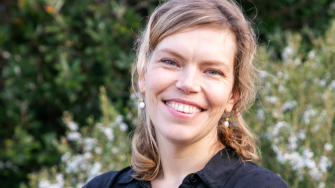
Alcohol and drug policy researcher Dr Claire Wilkinson is no stranger to “the juggle” of academia. From teacher, former ECA representative, to elected Vice-President of a large international scientific society, Claire has worked in different capacities and diverse contexts. During our conversation, she unpacks her “awakening to an international community”, her interest in non-for-profit models of substance retail, and the ways she values time spent among peers.
Can you tell us a bit about yourself?
My area of research is alcohol and other drug policy. I work within the Drug Policy Modelling Program (DPMP) at the Social Policy Research Centre (SPRC), consisting of a group of about 10 researchers. As part of this team, we look at a range of questions, such as how policies are made, who participates in the policy process, and what impacts policies have and how support for different alcohol and other drug policies varies.
I teach in the Social Sciences program. This year I am convening Qualitative Social Research, a second-year subject where students get experience using interviews as a data collection method and thematic analysis as a way to make meaning from those interviews.
I’ve previously been an ECA representative on SPRC’s Research Committee and a member of the ADA Early Career Academic Network. This year I will be convening the monthly network meeting of the DPMP, which is a network of 25 researchers and practitioners with an interest in how drug policy is done.
This year I was also voted in as Vice-President of the largest international scientific society of alcohol epidemiologists and policy researchers. A key part of this role will be to help support our communities annual scientific conference – a great source of inspiration and knowledge exchange as well as the place several international collaborations have begun.
What sparked your interest in this area of research?
I was lucky enough to fall into the area. I was looking for a research role after my undergraduate degree that was related to health. I applied for a Research Assistant role within a newly established Alcohol Policy Research Centre in Melbourne. I didn’t know people studied alcohol policy; my undergraduate degree had been a major in psychology and international development. From this, I had some knowledge of alcohol-related diseases in individuals but no understanding of population-level alcohol policy – things like tax, trading hours, advertising, etc.
The Centre was established by Professor Robin Room and he really sparked my interest in the area. He exposed me to the ways in which alcohol can be researched (through film, literature, policy, music, etc.) as well as connecting me to researchers across the world doing the same thing. It was a fascinating awakening to an international community of researchers examining how alcohol is available within society and the politics and culture around its use.
After my PhD, which I completed at this Centre in Melbourne, I moved to the DPMP. This has been great, because I now get to look at research such as what new markets for substances once illegal (e.g. cannabis) can learn from alcohol policy and regulation.
I also really like being among and working with other researchers – hearing about their area of expertise and marvelling at all the different things people research.
What are you working on right now?
At the moment I’m interested in non-for-profit models of substance retail. Counties establishing legal cannabis markets are interested in whether a non-profit model of retail, where any profits must go back towards the business or community, are likely to cause less harm than for-profit models – where individual owners made have an incentive to increase sales in order to increase private profit.
In Australia, we have a range of non-for-profit alcohol retail establishments in various forms, including RSLs, community-owned pubs or other social clubs (like workers clubs). I’m examining how their premises compare to for-profit retail, like a pub, in terms of the drinking culture and availability of alcohol.
What do you find most rewarding about being a researcher?
So much! I love deep diving into research, following my interests and questions. I like working on writing too – refining, editing and thinking about how language communicates knowledge. I also really like being among and working with other researchers – hearing about their area of expertise and marvelling at all the different things people research.
What piece of advice would you give to other early career researchers?
Ah, it is a juggle, and I feel often like I am dropping balls as new opportunities and demands open. I guess I’d recommend meeting and being around other early career researchers – this helps normalise the juggle and is a source of a lot of help and advice.
To learn more about Dr Claire Wilkinson’s research, projects and achievements, visit her Researcher Profile.
